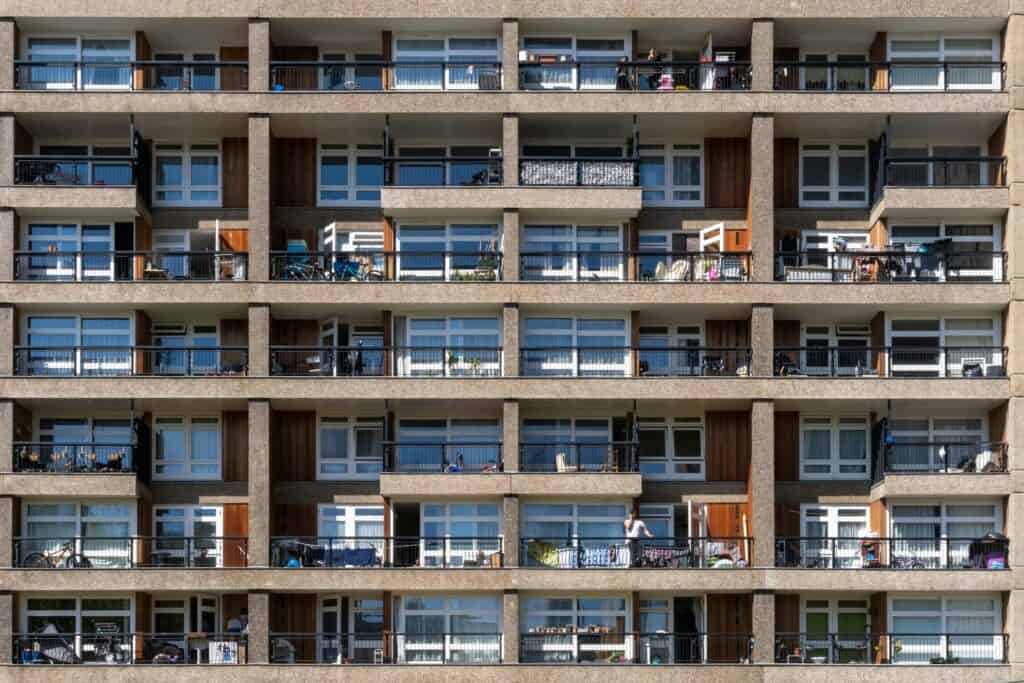Leasehold Enfranchisement Solicitors
What is Leasehold Enfranchisement? Understanding the Leasehold Enfranchisement Process
Leasehold enfranchisement is when the qualifying leaseholders of a block of residential flats collectively come together and serve notice on their freeholder to purchase the freehold.
Legal Framework Governing Leasehold Enfranchisement
The Leasehold reform Housing and Urban Development Act 1993 governs the legal framework for leasehold enfranchisement.
Types of Leasehold Enfranchisement
Statutory enfranchisement
Under the Leasehold Reform, Housing and Urban Development Act 1993 statutory enfranchisement is where leaseholders who qualify come together collectively and serve notice on the freeholder informing them of their intention to purchase the freehold under statute. There are very limited circumstances when the freeholder can refuse to sell them the freehold property under statutory enfranchisement.
Voluntary enfranchisement
This is where the leaseholders and freeholders agree for the freeholder to sell the freehold to the collective leaseholders.
Collective enfranchisement
This is another word for statutory enfranchisement or voluntary enfranchisement, and it means where the leaseholders come together to purchase the freehold.
Statutory Enfranchisement Claims Explained
Definition and process
Under the Leasehold Reform, Housing and Urban Development Act 1993 leaseholders can collectively come together to purchase the freehold of the building. The process is governed by the Act and there are limited circumstances where the freehold can refuse the request.
Benefits of Statutory enfranchisement
The leaseholders will take control of the freehold in its entirety once they acquire the Freehold via enfranchisement. If the leaseholders statutory enfranchise then there is no need to serve right of first refusal notices on all of the leaseholders in order for them to buy the freehold.
Further to this the terms of the transfer need to comply with the Leasehold Reform Housing and Urban Development Act 1993 and there can be negotiations on the premium payable
Voluntary Enfranchisement Claims Explained
Definition and process
This is where the freehold agrees to sell the freehold to the collective leaseholders. This can be done informally by way of transfer to the collective leaseholders (usually a company is set up).
Benefits of Voluntary enfranchisement
This is normally a shorter process than a statutory enfranchisement and the costs involved are lower.
Collective Enfranchisement Claims Explained
Definition and process
Under the Leasehold Reform, Housing and Urban Development Act 1993 leaseholders can collectively come together to purchase the freehold of the building. The process is governed by the Act and there are limited circumstances where the freehold can refuse.
Benefits of collective enfranchisement
The leaseholders will take control of the freehold in its entirety. If the leaseholders statutory enfranchise then there is no need to serve right of first refusal notices on all of the leaseholders in order for them to buy the freehold.
Commercial Property Enquiry
Fill out the form and a member of our team will get in touch to discuss how we can help.
The Role of Leasehold Enfranchisement Solicitors
The role of the solicitor is to agree the transfer of the freehold to the leaseholders. They will then register the same at HM Land Registry in the company name which has been set up by the collective leaseholders.
Benefits of Employing a Leasehold Enfranchisement Solicitor
Enfranchisement can be a complex procedure and without the guidance of a specialist solicitor it is easy for things to go wrong. Further to this, you will need a solicitor in order to register your interest in the freehold once the transfer has taken place.

Qualifications and Expertise of Mullis & Peake Leasehold Enfranchisement Solicitors
Shelley Fitzpatrick is the resident solicitor at Mullis & Peake LLP who specialises in leasehold enfranchisement. She works solely in this area, along with lease extensions and has done so for several years. Leasehold enfranchisement is a niche area and whilst many solicitors do these claims along side other work, there are few within the Essex area that specialise solely in this.
Tenants' Right to Enfranchise: The Legal Framework
The Tenants’ Rights to enfranchisement in a block of flats is currently governed by the Leasehold Reform Housing and Urban Development Act 1993.

Negotiating with Landlords: The Solicitor's Approach
The solicitor’s role in negotiations with the landlord is to agree the form of transfer and any leasebacks which have been agreed. The Premium is negotiated by a specialist surveyor.
Leasehold Enfranchisement and Lease Extensions
Once leaseholders complete the enfranchisement process they are free to grant lease extensions to any leaseholders in the block. For those leaseholders who did not partake in the enfranchisement process and wish to extend their leases a premium will be payable to enfranchisement company and those who own shares will receive a share of the premium payable.

Common Challenges in Leasehold Enfranchisement
Often the biggest challenges leaseholders face in enfranchisement is organising the lease holders to exercise the Right. Much of the work takes place prior to the initial notice being served by way of invitations being sent to all leaseholders offer them the right to participate and then participation agreements being entered into.
Leasehold Enfranchisement Timelines and Deadlines
Once the initial notice is served on the Freeholder and any Intermediate Landlords they will have a minimum time frame to respond of two months. Once a response is received by way of counter notice there will be six months from the date of the counternotice for parties to negotiation on all terms of acquisition which will include the form of transfer and the premium.

Frequently asked questions
Under the Leasehold Reform Housing and Urban Development Act a qualifying tenant is someone with a lease over 21 years and who has been the registered proprietor of the leasehold for 2 years or more.
This can be done by way of collective enfranchisement, where the leaseholders collectively purchase the freehold and therefor own a share in the freehold jointly.
Following completion of collective enfranchisement the leaseholder the leasehold property will still be held on a leasehold title only the ownership of the freehold changes.
A qualifying leaseholder can collectively exercise their right with other qualifying leaseholders to purchase the freehold.
Cosmetic work such as decoration does not usually require consent, although this will be dependent on the terms of the lease. More in-depth works such as changing the layout may require the consent of the landlord and a lease such be checked for what is required.
A lease is a wasting asset. As the lease term decreases so does the value of the property. A lease only fives its owner the rights to the property for the unexpired term of years contained within it.
A freeholder can refuse to extend a lease informally, but if a leaseholder qualifies they can serve notice under the Leasehold Reform Housing and Urban Development Act 1993 to force the freeholder to extend the lease.
Many mortgage lenders will not lend on leases below 85 years. Further to this a higher premium is currently payable for a lease extension if the unexpired term is under 80 years. Therefore, a lease should have more than 85 years unexpired term.
You will need to pay a premium which is calculated by a specialist surveyor. Further to this you will be responsible for the freeholders legal and surveyors costs as well as your own.
Under the leasehold Reform Housing and Urban Development Act 1993 you need to have been the registered proprietor for a minimum of two years before you have formally extend your lease. However a freeholder may be willing to extend your lease informally if you have owned a lease hold property for a lower amount of years.
Mullis & Peake have a specialist team in lease extension ready to help you. Contact us online today or call us on 01708 784000.
Alternatively, request a call back to have one of our experts contact you at a time that suits.


















